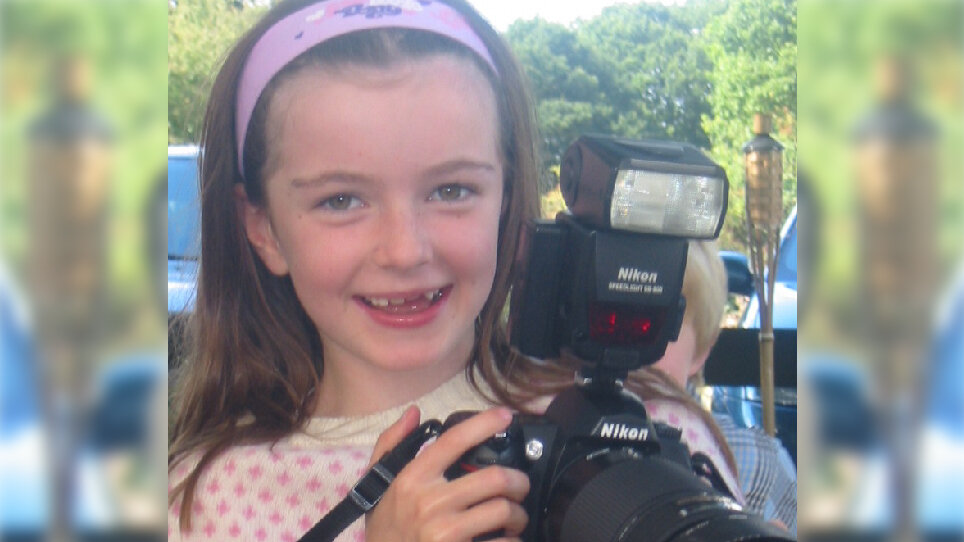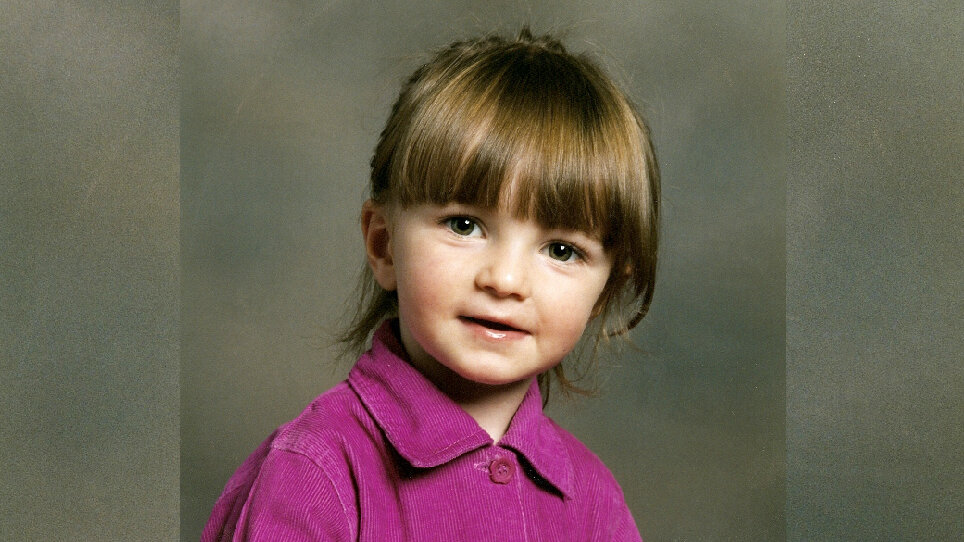Alex's story
Alex a photographer from London, was diagnosed at the age of 16. Alex photographed all six people featured in the Now I Know campaign, including herself. In her full interview, below, Alex explains that pictures were her first language and describes the sensory issues she struggled with at school.
My story
I wanted to take my campaign picture in Rankin’s studio because this is where I work now and I feel like I have finally found my place where I am accepted.
"I wanted to take my campaign picture in Rankin’s studio because this is where I work now and I feel like I have finally found my place where I am accepted."
Pictures, for me, have not always been an art form. It's been a lifeline and a practical thing.
When I was younger, I found communication very difficult. I was hypervocal when I was three – I'd speak like an adult but didn't necessarily know what those words meant.
But when I started school, I stopped speaking as much. The only way I could really communicate, my only reach into the outside world, was through pictures. That's almost my first language, then that's translated into words, which is something I've had to learn later in life.

I did a different degree at university, but after that I just wanted to go back to the only thing I really knew, which was pictures. That's why I decided to try and become a photographer as my job.
I have a really strong attention to detail and I think that's come from not really communicating that much with the outside world; I've been communicating a lot in my head.
I notice things, like the way light falls on people, and being in the studio, being able to actually create that and be in charge of how light falls on someone, it’s an amazing experience for me. I find it magical.
I sometimes feel guilty about my diagnosis story because when I hear stories from other people who have been diagnosed later on, they often talk about this weight off their shoulders or this moment of realisation or relief. Whereas I didn't feel that at all. I hated myself, I hated my diagnosis. And I think that came from the fact that the only experience I'd ever had of autism were the savant male characters on TV.
"The only experience I'd ever had of autism were the savant male characters on TV. People would say that autism was a superpower and I used to think, where's mine?"
And I felt like: ‘I’m autistic, but I'm not even the “good” kind of autistic’ – they have amazing mathematical ability, like the cleverest people ever, who can work for NASA or something, these amazing minds that contribute to the world. And in groups I used to go to, people would say that autism was a superpower, and I used to think, where's mine? It's like, I'm autistic, but I don't have the superpower part. And that made me angry.
I didn't identify with anyone that I met that was autistic, because I think looking back, they were all male.
And I was also told by my GP that being autistic could have significant career and social ramifications.
I just felt like I'd been burdened at 16 with this secret about myself, that was the ‘why’ for everything I did, but I could never explain that to anyone because it would ruin my life.

It wasn't until I got into my twenties that I was able to unburden myself and start talking about it and telling people.
"I feel a sense of pride in myself because I've done a lot of things that I was never considered able to do."
Now I feel a sense of pride in myself because I've done a lot of things that I was never considered able to do. And I feel lucky that I have a family that was able to stop me slipping through the net. When I was at school, I was told not to come back anymore because I would truant all the time, because I was so scared of being in lessons with the lights and people being close to me, touching my things.
It was so overwhelming. I was told I could only sit my Functional Skills exams rather than my GCSEs and I would never go on to achieve anything. My grandad, who's in his eighties, taught me my GCSEs for two hours every day. Every single day.
When I got my results, I got 14 As – as somebody who was told I wasn't even capable of sitting one GCSE! But that doesn't make me happy, that makes me sad, because I believed I was stupid. I went on to get a degree and a master's degree, but that's only through sheer luck that I had a family that was able to stop me slipping through the net. So many people go through life thinking they’re stupid and they're not – the school system was never designed to fit them. Now I feel pride in what I've achieved. But I also feel an immense responsibility to make sure that autistic girls at school never feel the way I did.
"Schools need to be more adaptable to make it easier for autistic girls. My uniform, for example, it used to honestly feel like my body was on fire wearing it."
Schools need to get better at looking closer at girls. There are a lot of behaviours in girls that are often dismissed as ‘bratty’ or just ‘quiet’, because it’s socially acceptable for girls to be quiet and people pleasers and meek. And schools need to be more adaptable to make it easier for autistic girls.

My uniform, for example, it used to honestly feel like my body was on fire wearing it. I think, ‘Why do we have to wear uncomfortable clothing? Why do the lights have to be like that? Why do we have to sit in that way?
We need to learn to be more adaptable to people’s needs as a society, not just in school.
And I think the more used to loneliness you get the further away everything else feels and it kind of feels like nobody's within reach. I remember feeling frustrated a lot; at my own communication ability and with myself, like: why can't I be like everyone else? Wondering why I could never get it quite right, which was really difficult. Loneliness, I think, was the main thing and then frustration and I had a lot of anxiety to do with change.
"This is very specific to girls: I would get told a lot that I was a ‘drama queen’."
This is very specific to girls: I would get told a lot that I was a ‘drama queen’ or ‘diva’, a ‘madam’ or a ‘brat’, ‘a spoiled brat’, when actually you’re just autistic. When certain plans or decisions changed, I found it really difficult.
Wearing certain clothes, eye contact, hugs – when I refused to hug family, when I didn't want to make eye contact, when I had real trouble with change – it was, ‘Oh, she's such a spoiled brat, she's such a diva, she's so uptight’ and I think that's quite specific to women. I think most women can relate to being called those things. It's very lonely and quite frustrating.
I would say to my younger self: ‘Be kinder to yourself.’ I was so horrible to myself and so angry at myself. You're always perceived as the problem, you start to think that yourself, because when you're always perceived as the problem you start to think that yourself. When you think you're the problem in every situation, it's really hard to unlearn that.
"You're always perceived as the problem, you start to think that yourself."
I would be kinder to myself and probably just say that life's going to get easier after school. And I’d say: ‘You're so lucky for your grandad.’
It’s so important that people understand autism in women because women make up half of our population and that’s a lot of autistic people who are going through life wondering why they're ‘the problem’ and constantly trying to fix something that's not broken. And so many women go through the world thinking they're invisible. I think if we could get more women diagnosed and show them that they're not invisible and allow them to feel seen, I think that's the most important thing that we could ever do to be honest.
"If I can play any role in making women feel seen for the first time, then I've done what I set out to do."
I wanted to take part in this campaign because, ever since I started my photography journey, the only thing I've ever wanted was to make sure no kid ever feels like I felt. Because that feeling of loneliness and anger towards yourself is so lonely and I think it can be quite dangerous if there's not a support system around that person.
It takes years and years to unlearn such a deep anger at yourself and such a negative self-image. If I can play any role in making women feel seen for the first time, then I've done what I set out to do.
